In this article we would like to introduce shopping spots and the popular “Wagashi”-Japanese cake shop in Kyoto.
Nishiki Market 錦市場

The Nishiki market started as a fish market in 1615 when the Tokugawa Shogunate gave it an official name, the “Uo-donya.” Today, it is still called “the kitchen of Kyoto.” There are 126 shops in the market arcade, which is 390 meters across, selling local Kyoto vegetables, fresh sea food, Kyoto Tsukemono (pickles), Yuba (soy-milk skin), tea and sweets. At many shops you can try tasting samples. Tourists visit here to get to know the life-style of Kyoto people by walking around and eating local foods.
- Location Takakura, Teramachi-nishi-iru, Nishiki-koji-dori-teramachi, Chuo-ku, Kyoto
- URL http://www.kyoto-nishiki.or.jp/
Shijo Kawaramachi 四条河原町
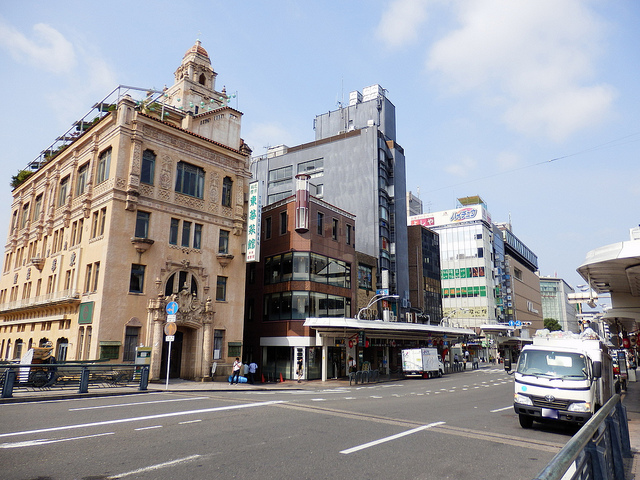
Shijo Kawaramachi, which takes its name from the intersection of Shijo Street (from Shijo Kawaramachi to Shijo Karasuma), Kawaramachi Street (from Shijo Kawaramachi to Kawaramachi Sanjo) and Teramachi Street (from Shijo Street to Oike Street and Shin-kyogoku Street) is a flourishing shopping and amusement area. Tourists as well as Kyoto residents flock to the area with department stores, fashion stores and plenty of gourmet shops making Shijo Kawaramachi Kyoto’s top trendsetting center for fashion and new life styles.
- Location Shijo Kawaramachi, Kyoto
Aritsugu 有次
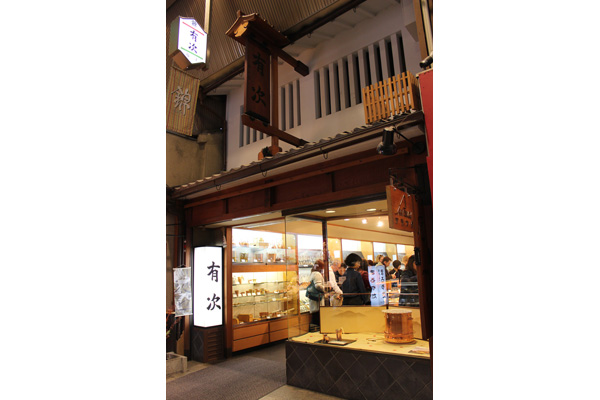
Shop dealing with kitchen knives and kitchenware, offering the professional and household use made by blacksmiths. Recommended souvenir for the cooking lover.
- Location 219, Kajiyacho, Nakagyo-ku Kyoto
- URL http://www.kyoto-nishiki.or.jp/stores/aritsugu/
Demachi Futaba 出町ふたば
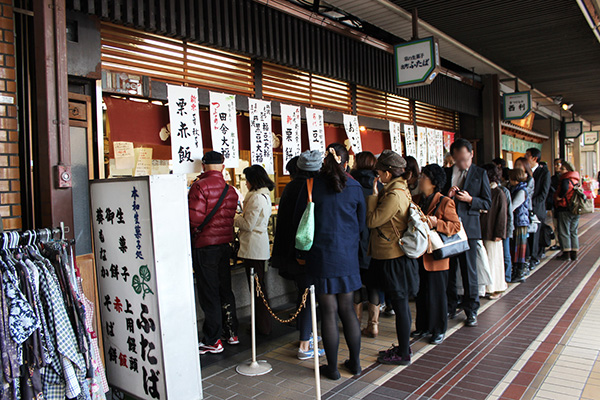
Very famous Japanese confectionery shop dealing with freshly made soft round rice cakes with beans stuffed with sweet red bean paste. It is very busy with long line every day. It’s good for eating while walking. It is necessary to consume within the date of purchase because no preservatives are added. Not recommended for the souvenirs.
- Location 236, Seiryucho, Kamigyo-ku Kyoto
Saraku 茶洛
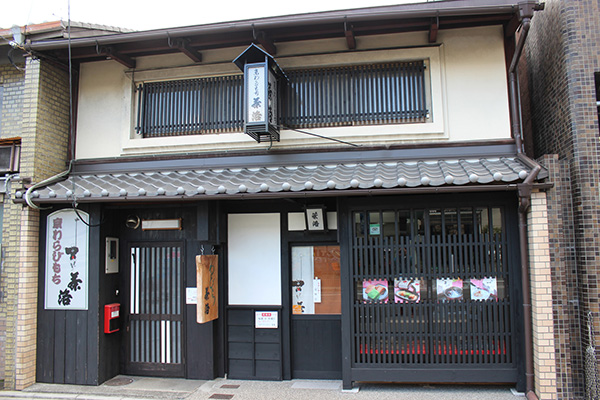
Shop dealing with hand made fresh Warabi-mochi(bracken-starch dumpling) using only natural ingredients. Not suitable for the souvenirs because no preservatives are added and it cannot keep for a long time. It’s good to eat on the date of purchase.
- Location 147, Motokitakojicho, Kamigyo-ku Kyoto
- URL http://www.saraku.jp
Marutamachi Kawamichiya 丸太町かわみち屋
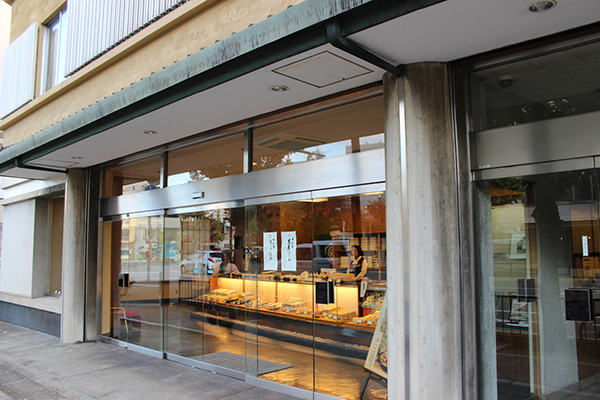
Japanese confectionery shop selling traditional sweets “Soba bouro” (Crispy buckwheat cookies). “Bouro” was introduced into Japan during Edo period by Portuguese, which is very popular as a souvenir in Kyoto.
- Location 331, Shintomicho, Kamigyo-ku Kyoto-shi, Kyoto
- URL http://www.okashi-net.com/kyomall/kawamichiya/
